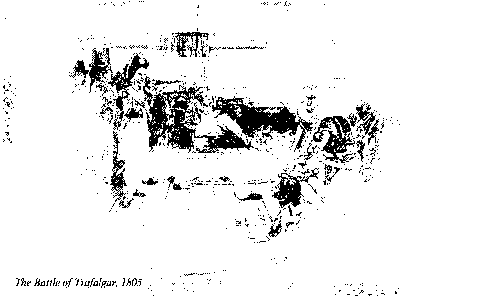
57
The industrial revolution involved a revolution in transport. Man-made canals together with rivers linked
the main ports of England, roads were improved and a service of post coaches was started in 1784.
The end of the 18th century was the period of social disintegration – the wealth of the few was growing
while the misery and poverty of the majority of people were increasing equally rapidly. Deprived of the means
of production workers had lived in slums and worked long hours for very low wages in factories and mines.
The country was splitting into two nations – the rich and the poor.
There were many reasons for discontent in Britain, but the Revolution in France in 1789 was first welcomed
in England by liberals, but it was becoming ferocious and bloody, the British ruling classes were frightened that
similar events might happen in Britain. The Book by E. Burke "Reflections on the Revolution in France" was a
serious warning of the dangers of radicalism. The Government took tough measures against the working class
movement and organisations that were appearing: mass meetings were forbidden, associations of workers were
declared illegal.
Pitt had been Prime minister after 1784 almost all his life. But the King (George III) was an old sick man,
who was not always in his right mind, so the position of the P. M. was extremely important. Pitt was
determined to maintain peace, but Revolutionary France declared war in 1793. The British troops were defeated
in the Netherlands and the French West India, and the situation became more dangerous when a New French
general appeared on the political scene – Napoleon.
The British were rescued by their Navy. The commander of the British fleet, admiral Horatio Nelson won
brilliant victories over the French navy, near the coast of Egypt, at Copenhagen and near Spain. At the Battle of
Trafalgar in 1805 Nelson destroyed the French-Spanish fleet, but was killed by a sniper. He became one of
Britain's greatest national heroes. His words to the English fleet before the battle of Trafalgar "England expects
that every man will do his duty" are preserved in the memory of the nation as a historic example of partiotic
duty in the time of danger.
The greatest general of the British army in the actions against Napoleon became the Duke of Wellington (Sir
Arthur Wellesley 1769-1852).
After the disastrous invasion of Russia (1812) Napoleon was defeated by the European coalition in the Battle
of Nations at Leipzig (1813), was imprisoned on the isle of Elba and escaped from it to reappear in Paris again.
The last battle was fought in Belgium at a small place called Waterloo
(1815). The British army led by
Wellington and the Prussian army under Marchal Bluher defeated Napoleon, he had to abdicate and was sent to
St. Helena in the South Atlantic and died there.
The Congress of the European Powers held at Vienna made peace and Britain emerged from the "Napoleonic
Wars" a great empire: to Canada, Australia and most of India she added Cape Colony (South Africa), Ceylon
and Guinea as well as a number of small provinces.
But this newly enlarged great power was suffering from internal problems: political and economic reforms
had been long overdue, the years of the war had been a period of repressions, and the position of the workers
and the poor had deteriorated.
The first political measure of the Government was a Corn Law prohibiting the import of cheap foreign grain.

